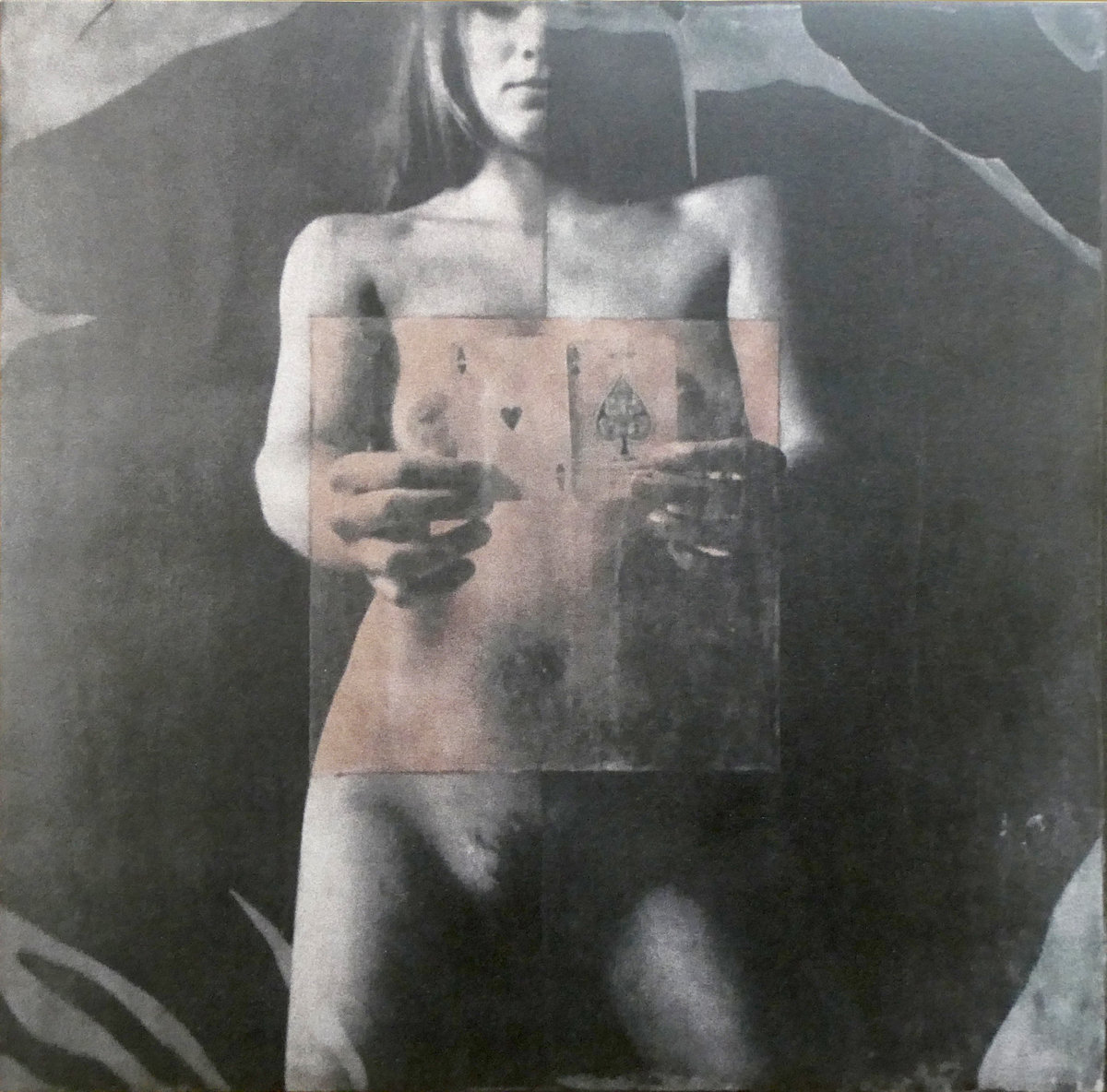 The French Standard In-Fi label has been one of my casual obsessions over the last few years and this second album from Omertà was my favorite release that surfaced from that milieu in 2022. From what I can tell as an outsider, there appears to be a loosely knit family of artists, psych enthusiasts, and avant-folk weirdos that convene periodically in varying configurations and occasionally an album will eventually surface documenting whatever magic transpired. Omertà unsurprisingly shares key members with other fitfully killer projects like France and Tanz Mein Herz, but this ensemble is an unique animal for a number of reasons. The most striking of those reasons are the breathy, sensuous vocals of Florence Giroud, who I believe is only active in this one project (as far as rock bands are concerned, at least). Giroud’s vocals aside, Omertà is also far more informed by eroticism, dream states, pop music, and chansons than the usual Standard In-Fi fare. To my ears, something compelling almost always seems to happen whenever Jeremie Sauvage & Mathieu Tilly assemble a group of like-minded artists, but Collection Particulière’s “Amour Fou” and “Moments in Love” are easily among the most beautifully distilled and haunting pieces that the label has released to date.
The French Standard In-Fi label has been one of my casual obsessions over the last few years and this second album from Omertà was my favorite release that surfaced from that milieu in 2022. From what I can tell as an outsider, there appears to be a loosely knit family of artists, psych enthusiasts, and avant-folk weirdos that convene periodically in varying configurations and occasionally an album will eventually surface documenting whatever magic transpired. Omertà unsurprisingly shares key members with other fitfully killer projects like France and Tanz Mein Herz, but this ensemble is an unique animal for a number of reasons. The most striking of those reasons are the breathy, sensuous vocals of Florence Giroud, who I believe is only active in this one project (as far as rock bands are concerned, at least). Giroud’s vocals aside, Omertà is also far more informed by eroticism, dream states, pop music, and chansons than the usual Standard In-Fi fare. To my ears, something compelling almost always seems to happen whenever Jeremie Sauvage & Mathieu Tilly assemble a group of like-minded artists, but Collection Particulière’s “Amour Fou” and “Moments in Love” are easily among the most beautifully distilled and haunting pieces that the label has released to date.
The album’s title translates as “private collection,” which is an allusion to the prolonged saga behind the striking and unusual cover image from Giroud’s younger days. Since the band that has existed at the nexus of art, sex, and dreams since its very beginning, Giroud had hoped to use an image from the same series for the band’s 2014 debut, but when she managed to track down the artist, she learned that a fire had destroyed his workshop and damaged the hard drive containing all the digital copies. The artist vowed to send some images when the data was recovered, but then he abruptly died instead. Later, Giroud was able to contact the artist’s daughter who was managing his archive, but she was only able to provide a photo of a single damaged piece, as the rest of the series had all found its way into private collections. In the original piece, Giroud’s torso was covered with a wax image of a playing card (“holding the ace of spades and the ace of hearts, Eros and Thanatos”), but the wax melted during the fire to become transparent. In keeping with that theme of serendipitous changes in plans, Omertà itself originally blossomed out of an opera that Giroud was working on back in 2013.
I am not sure if that opera ever surfaced in its intended form (Giroud is a sculptor as well, incidentally), but there is nothing remotely operatic about Omertà, as this latest opus feels like an inspired collision between Tortoise, Serge Gainsbourg’s work with Jane Birkin, and arty psychedelia. That marks an delightful evolution from the band’s more single-mindedly psych-focused debut album, as Omertà seem to have gotten very serious about distilling their vision into something more tight, focused, and pop-adjacent (albeit pop from another era). While I enjoy that previous album too, Collection Particulièr is on another level altogether, as Omertà definitely play to their strengths much more this time around and feel like a far more distinctive entity as a result. Unsurprisingly, the main strength is Giroud’s seductive vocals, but the band’s newly muscular rhythm section is another big improvement, as the band make extremely effective use of their two bassists (one laying down a meaty groove, the other taking a more melodic role). The strongest pieces tend to be the sexier ones (“Amour Fou” and “Moments in Love”), as Giroud is an undeniably charismatic, compelling, and sensuous vocalist, but the band’s overall vision is also extremely cool one due to the casual virtuosity of the musicians, the unusually minimalist arrangements, and the propulsive physicality of the grooves. I am normally the absolute last person on the planet who would say something like “I really dig that dude’s bass tone,” but the bass playing on Collection Particulièr has enough visceral heft and richness that it would still be a great album even if the guitar, organ, and synth vanished. Instead, however, Omertà use that simple yet killer bass and drum foundation to create a vacuum in which every cool spacy synth flourish, string scrape, or warm organ chord makes an impact. Granted, not every song quite hits the mark with a perfect bullseye, but even the lesser pieces are still quite enjoyable and the album’s highlights capture a band whose vision, execution, and control are truly on a plane all their own.
Read More

